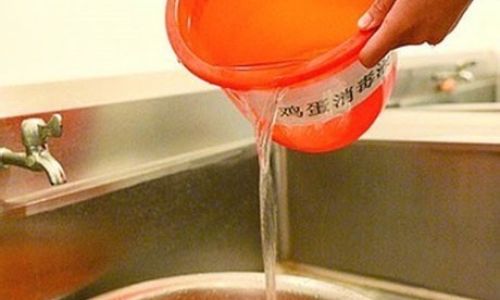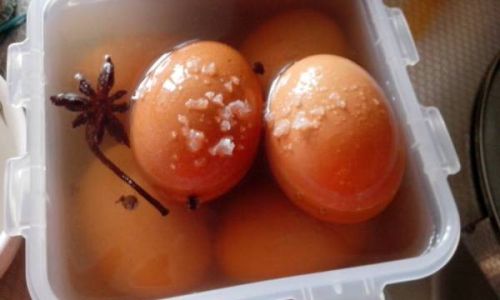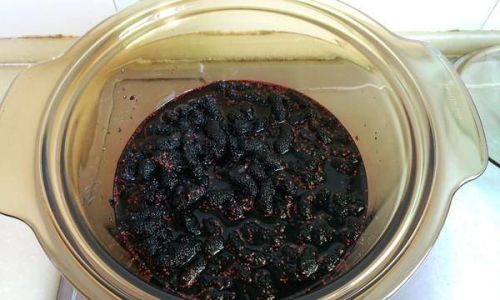Table of content
Preserving pickled salted eggs is an art that has been perfected over centuries, especially in cultures where eggs are a staple food item. The process of pickling and salting not only enhances the flavor of the eggs but also extends their shelf life significantly. Whether you’re preserving them for personal consumption, as a gift, or for commercial purposes, understanding the right techniques is crucial to ensure that your pickled salted eggs remain delicious and safe to eat for an extended period. This comprehensive guide will walk you through the steps and considerations necessary for perfect preservation of pickled salted eggs.
Understanding the Basics of Pickling and Salting Eggs
Before diving into preservation methods, it’s essential to grasp the basics of how pickling and salting work. Pickling involves immersing food in a brine solution, often containing vinegar, salt, and spices, to preserve it. In the case of salted eggs, the primary preservative is salt, which draws out moisture from the eggs, creating an environment unfavorable for bacteria growth. The combination of salt and sometimes vinegar or other acidic components further enhances preservation by creating a hostile environment for microorganisms.
Choosing the Right Eggs
-
Freshness Matters: Start with fresh eggs. Older eggs have more air pockets and can be more prone to cracking during the pickling process. Fresh eggs also have a firmer texture and better flavor after preservation.

-
Grade and Size: While the grade (AA, A, B) of eggs isn’t critical for pickling, larger eggs may take longer to fully absorb the brine. Consider your preference for egg size when pickling.
-
Pasteurization: If you’re concerned about food safety, using pasteurized eggs can reduce the risk of bacterial contamination. However, traditional methods often rely on raw eggs for the authentic flavor and texture.
Preparing the Brine Solution
The brine is the cornerstone of pickled salted eggs. Its composition will affect both the taste and the preservation capabilities.
-
Salt Concentration: A strong brine with a high salt concentration (around 20-30% by weight of water) is essential for effective preservation. This concentration creates a hypertonic environment that draws moisture out of the eggs, inhibiting microbial growth.
-
Acidity: Adding vinegar or other acidic ingredients like lemon juice can enhance preservation by lowering the pH level, making it even more hostile to bacteria. However, too much acidity can affect the final taste, so balance is key.
-
Flavorings: Spices, herbs, and other flavorings like garlic, bay leaves, and peppercorns can be added to the brine for additional flavor. These do not significantly contribute to preservation but enhance the eating experience.
The Pickling and Salting Process
-
Cleaning the Eggs: Gently wash the eggs under cold running water to remove any dirt or debris. Pat them dry with a clean cloth or paper towel. Avoid using soap, as it can leave a residue.

-
Cracking (Optional): Some recipes call for lightly cracking the eggshells to allow the brine to penetrate more deeply. However, this increases the risk of contamination, so ensure your equipment and workspace are sterile if you choose this method.
-
Soaking in Saltwater: Before pickling, soak the eggs in plain saltwater (about 1 tablespoon of salt per cup of water) for a few hours or overnight. This helps draw out some moisture and prepares the eggs for the stronger brine.
-
Placing in Brine: Once the brine is ready, carefully submerge the eggs in it, ensuring they are fully covered. Use a non-reactive container (glass, ceramic, or stainless steel) to avoid any chemical reactions that could affect the taste or safety of the eggs.
-
Weighting Down: To keep the eggs submerged, you can use a smaller container filled with water or a clean, heavy plate. This prevents the eggs from floating and ensures even exposure to the brine.
Preservation Techniques
Once the eggs are pickled and salted, several methods can be employed to ensure their long-term preservation.
Refrigeration
Refrigeration is the simplest and most effective method for short- to medium-term preservation.
-
Temperature Control: Store the pickled eggs in a refrigerator at a temperature of around 4°C (39.2°F). This slows down bacterial growth and extends the shelf life.

-
Airtight Container: Transfer the eggs and brine to an airtight container before refrigerating. This prevents contamination and reduces the risk of off-flavors from refrigerator odors.
-
Regular Checking: Periodically check the eggs for signs of spoilage, such as a bad odor or discoloration. The brine should remain clear and not develop a slimy texture.
Canning
For longer-term preservation, canning is an excellent option. It involves processing the eggs in a pressure canner to achieve a sterile environment.
-
Canning Jars: Use clean, sterile canning jars with tight-fitting lids. Ensure there are no cracks or chips in the jars.
-
Hot Pack Method: Pack the eggs into the jars along with the brine, leaving headspace as specified in canning guidelines (usually about 1 inch). Process the jars in a pressure canner according to the manufacturer’s instructions for the size and type of jar.
-
Cooling and Storage: After processing, allow the jars to cool naturally. Check for any jars that haven’t sealed properly (the lid should be concave and not move when pressed). Properly sealed jars can be stored in a cool, dark place for up to a year or more.
Freezing
Freezing is another viable option, although it can slightly alter the texture of the eggs upon thawing.

-
Freezer-Safe Containers: Use freezer-safe, airtight containers or heavy-duty freezer bags.
-
Brine Consideration: You can freeze the eggs in their brine, but be aware that the brine may expand and could potentially crack the container. An alternative is to remove the eggs from the brine, wrap them individually in plastic wrap or freezer paper, and then place them in a container.
-
Labeling and Date: Clearly label the containers with the date and contents. Frozen pickled salted eggs can be stored for several months.
Monitoring and Troubleshooting
Throughout the preservation process, it’s crucial to monitor the eggs for signs of spoilage.
- Odor: A strong, unpleasant odor is a clear sign of spoilage.
- Appearance: Discoloration, sliminess, or mold on the eggs or in the brine indicates that the eggs are no longer safe to eat.
- Brine Changes: The brine should remain clear and not develop a cloudy or murky appearance.
If you encounter any of these issues, discard the eggs immediately to prevent food poisoning.
Conclusion
Preserving pickled salted eggs is a rewarding endeavor that allows you to enjoy this delicious treat year-round. By understanding the basics of pickling and salting, choosing the right eggs, preparing the brine correctly, and employing effective preservation techniques, you can ensure that your pickled salted eggs remain safe, flavorful, and ready to eat whenever you desire. Whether you opt for refrigeration, canning, or freezing, each method has its advantages and can be tailored to your specific needs and preferences. With a bit of practice and attention to detail, you’ll be able to perfect the art of preserving pickled salted eggs, delighting your taste buds and preserving a culinary tradition for generations to come.





0 comments